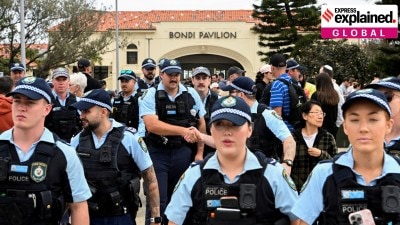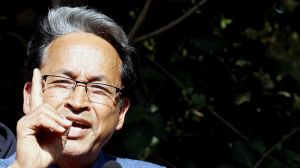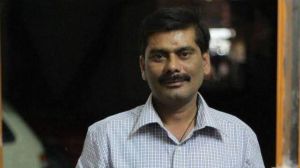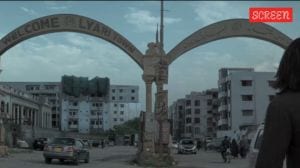Rajasthan polls, Rahul Yatra: Why Ashok Gehlot announced welfare board for MBC group
The board for Gadiya Lohars a signal to Gujjar leader Vijay Bainsla who has threatened to disrupt the Bharat Jodo Yatra if demands of Most Backward Castes are not met.
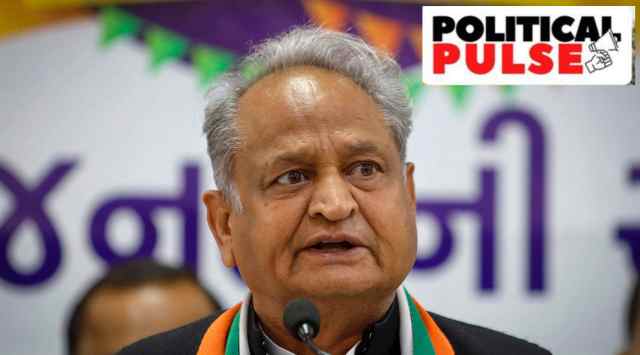 In the recent past, however, the Rajasthan CM Ashok Gehlot government has been reaching out to different caste groups in the run-up to the Assembly elections by constituting committees. (PTI Photo)
In the recent past, however, the Rajasthan CM Ashok Gehlot government has been reaching out to different caste groups in the run-up to the Assembly elections by constituting committees. (PTI Photo)Days after the Most Backward Castes (MBCs) in Rajasthan threatened they would not let the Congress’s Bharat Jodo Yatra enter the state if demands related to employment of the community’s youth were not resolved, Chief Minister Ashok Gehlot on Saturday announced that a welfare board would be set up for the MBC Gadia Lohar group.
Taking to Twitter, Gehlot announced that a Rajasthan Rajya Gadiya Lohar Kalyan Board would work for the community’s welfare and include members of the community.
While the move is a part of its larger social engineering bid ahead of the 2023 polls to indicate the Congress is concerned about the upliftment of the community, it is also aimed at preventing any disruption of the Yatra, which is set to enter the state on December 3.
In 2019, the Gehlot government passed the Rajasthan Backward Classes (Reservation of Seats in Educational Institutions in the State and of Appointments and Posts in Services under the State) (Amendment) Bill, which extended five per cent reservation to the communities of Banjara (Badiya or Labana), Gadiya Lohar (Gadoliya), Gujjar (Gurjar), Raika (Rebari or Debasi), and Gadariy (Gadri or Gayari) under the MBC category.
Gurjar leader Vijay Bainsla has reiterated on a number of occasions that communities such as the Gadiya Lohars are backward, having little or no representation in governance. This year, Bainsla even toured 75 Assembly constituencies with a significant MBC population in an effort to mobilise them before the Assembly elections next year.
On November 14, Bhainsla said, “According to our previous agreements with the state government, appointment was to be given in jobs which were in the pipeline and advertised when the law of five per cent reservation for MBC communities was passed. In the 2018 manifesto of the Congress, the party promised to give us recruitment in the backlog jobs. If the government doesn’t listen to us, we will not let Rahul Gandhi enter Rajasthan for the Bharat Jodo Yatra.”
In this environment, the state government seems to be hoping to send a message of concern for the community’s welfare by pacifying at least one MBC group before the Bharat Jodo Yatra enters the state.
Any disruption to the Yatra in Rajasthan, which is one of the two Congress-ruled states in the country, will be a huge embarrassment for Gehlot, who will not look to antagonise the Congress high command and the Gandhi family after the events in September. At the time, Gehlot loyalist MLAs skipped a legislature party meeting called by the top leadership and submitted their resignations to prevent Tonk MLA Sachin Pilot from being elevated to the CM chair even as Gehlot was being considered for the post of Congress president.
In the recent past, however, the Gehlot government has been reaching out to different caste groups in the run-up to the Assembly elections by constituting committees. In the recent past, It has similarly formed the Vipra Kalyan Board for the Brahmin community; the Rajasthan Charm Shilp Kala Vikas Board (or people associated with leather work); the Mahatma Jyotiba Phule Board for the Saini, Kushwaha, Mali groups; the Rajak Kalyan Board aimed at the Dhobi community; and the Rajasthan Keshkala Board for the Sain community. Meant to give the groups a sense that they are stakeholders in governance, each board has a president and members from the communities.
- 01
- 02
- 03
- 04
- 05


